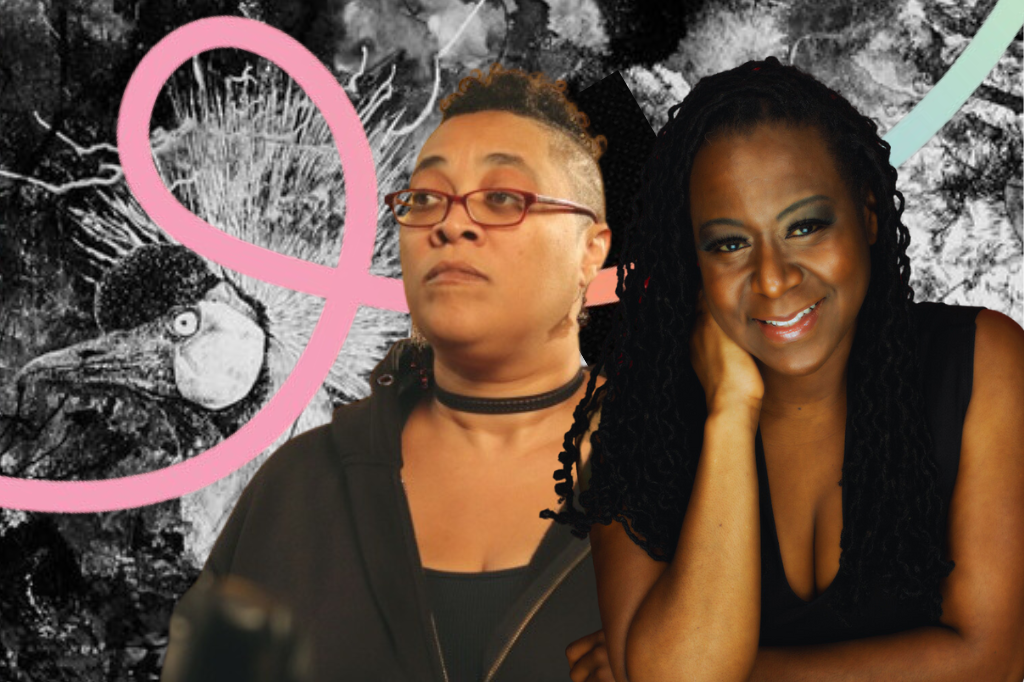Stone by Stone: In Conversation with The First Stone’s Donna-Michelle St. Bernard and Nawa Simon
Three-time Governor General’s Award nominee Donna-Michelle St. Bernard’s new play, The First Stone, is set to premiere at Ottawa’s Great Canadian Theatre Company (GCTC) this month. While it may not be a light play, it is an important one.
Based on the events of the Ugandan Civil War of the 1980s, The First Stone tells the story of Boy and Girl, children who are abducted from their home in an unnamed country and into the tumultuous war. The two children and those remaining in their village must face not only the brutalities of war, but also violence and other intergenerational conflicts.
The play was born from St. Bernard’s experiences during her visit to Uganda “a million years ago,” she said in an interview. St. Bernard was travelling with her band and Toronto-based charity Athletes for Africa, which supports East African youths through programs that bolster health, education, and leadership through sports.
“[Athletes for Africa] were building awareness and tried to do something about the night commuters. This is the first time I heard of them — the children who would walk every night for hours to the city to sleep safely under lights, and then walk every morning back home and go to school. That was just the shape of their lives,” said St. Bernard.
The First Stone is part of St. Bernard’s ambitious collaborative performance project, 54ology. With the project, St. Bernard aims to “work against the single-story effect” by writing a rich collection of plays from each nation-state and country in Africa.
Nawa Simon, who plays the lead role of Girl in the Ottawa run, believes the play is not just about the war itself, but “how these individual characters navigate themselves, regardless of what’s going on.”
“The great thing about acting is to be able to build a character. We all were, you know, young teenagers at a certain point. Me as a 14-year-old [in Canada] is very different than Girl as a 14-year-old,” said Simon. “So being able to tap into when childlike qualities can be displayed, versus when there’s times when children who are in these types of situations have to grow up a little bit more than children who aren’t.”
With around 15 years of experience in theatre and performance, Simon has become increasingly drawn to complex roles rooted in history. She played the lead role in St. Bernard’s critically-acclaimed 2009 play Gas Girls — another entry in 54ology, which follows two sex workers earning gas for survival in Zimbabwe — before tackling the role of Girl.
“Girl goes through a dramatic transformation, and then it’s almost … full circle by the time the play ends,” Simon explained. “But it gives a sense of the perseverance of people. That hope can still spring in slow rain, in times of terror, in times of uncertainty.”
Using child characters as the centre of her war-torn setting, St. Bernard asks a key question: who effects change, and who is affected by that change? The playwright pushes the audience to focus on what the children want, ensuring the characters can grow into full humans whose traumatic experiences do not define them.
“It is the children who are leading and giving agency to children who tend to be seen as passengers of the war,” she said. “[To] speak to their agency, to speak to their experience and what they want to happen next in a world that is often talking about what we want from them next, or what we think they should do next,” she said.
St. Bernard and Simon both acknowledge that the common sensationalization of Ugandan children’s stories created some challenges in their preparation for this work. It was important that they remained intentional and respectful to tell the story in a way that appropriately represented its subjects.
“The biggest challenge is to not bring into the experience or into the room, your stereotypes, your preconceived notions about what [the] life that they’re living is,” said Simon. “Because these are true stories, there are actual people behind this. It’s more of being able to flesh out the humanity of it, to find the realness of it.”
Despite the emotional and difficult nature of the play, St. Bernard considers The First Stone to be her best work from 54ology to date, singing the praises of the director and long-time collaborator Yvette Nolan.
“[Nolan’s] work illustrates and builds community, and there is a genuine sense of community in the creation of the show that is then manifest onstage,” said St. Bernard. “And that’s something that was really important for this play.”
“One way of looking at the play is where the action is led by women in this play largely…[or] youth. But [there is] always the ever presence of the community as the context for what is being broken, what is being fixed and what is just being changed and taking new shape.”
Although the play explores plenty of despair and violence, St. Bernard wants to assure audiences that forgiveness and hope can be found in even the most tumultuous times.
“I think it’s important to move forward with love and hope because to choose any other path will just elongate how long you are uncomfortable,” said Simon.
“It’s important, especially for us as people of colour, to understand that our traumas and things that we go through — they’re movable. It’s something that will pass should you let it. You will not come out the same and I think anything that’s growing and changing is alive. But anything that is not growing and changing is dying or dead. So to keep that message of perseverance and keep going forward and going through the uncomfortability is important.”
Having completed its run at Toronto’s Buddies in Bad Times Theatre last October, both St. Bernard and Simon are eager to bring the heartfelt and inspiring New Harlem Productions and GCTC co-production to a new audience in Ottawa.
The significance of producing the play in Canada’s capital is not lost on St. Bernard. She recognizes that the decisions made in Ottawa, including large-scale war decisions, impact not only local citizens, but everyone across Canada.
“It’s really important for us that we don’t disconnect from what happens on the other end of buttons we push,” she said. “And it’s even more important, not just in the international realm, but even locally and domestically, to centre those most affected in seeking solutions [and] to be led by those who are going to be most impacted by what happens next.”
The First Stone runs at the Great Canadian Theatre Company in Ottawa from April 11–23. For more information about the show, visit the GCTC website.















Comments